About the Contributors
Chris Baber

Chris Baber is the Chair of Pervasive and Ubiquitous Computing at the University of Birmingham. His research interests focus on the many ways in which computing and communications technologies are becoming embedded in the environment around us and the things we use on a daily basis. Not only do we have significant computing power in the mobile phone in our pocket, but, increasingly, other domestic and personal products are gaining similar capabilities. Chris is interested in how such technologies will develop and how they will share the information they collect, and also in how these developments will affect human behaviour.
Cristina Barrado
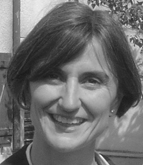
Cristina Barrado was born in Barcelona in 1965 and is a computer science engineer from the Barcelona School of Informatics, which belongs to the Technical University of Catalonia (UPC). She also holds a PhD in Computer Architecture from the same university. Dr Barrado has been working with UPC since 1989 and is currently an associate professor at the School of Telecommunications and Aerospace Engineering of Castelldefels (Escola d'Enginyeria de Telecommunicació i Aeroespacial de Castelldefels, EETAC). Her current research interests are in the area of the UAS civil mission, including payload processing, avionics CNS capabilities and non-segregated airspace integration.
Richard Baumeister
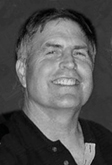
Richard Baumeister from the Boeing Company has over 30 years' experience performing system engineering and management of complex missile and space programs. From 1979 to 1982 Rich was the lead mission planner and orbital/software analyst for the F-15 ASAT Program. In 1982--1986 Rich helped supervise the integration and operations of the Prototype Mission Operations Center into the NORAD Cheyenne Mountain Complex.
From 1987 to 1995 Rich was the Systems Engineering Manager for a classified complex national space system. During this period Rich oversaw the successful development of innovative techniques for the detection and resolution of system anomalies.
From 1996 to 2004 Rich was Director of Product Development for RESOURCE21 LLC, a Boeing-funded joint venture. Rich led the technical research and development of aerial and space-based remote sensing-based algorithms and associated information products for Production Agriculture, Commodities, Crop Insurance, and Forestry markets. He directed and participated in the creation of numerous proprietary research papers/presentations dealing with the detection of various crop stresses using multi-spectral imagery. Rich successfully managed the development of an atmospheric correction process and decision support tools in support of a commercial collection campaign.
From 2005 to the present Rich has been supporting automated air traffic control concepts and algorithms, and was the lead engineer for Boeing on the recently completed Smart Skies program.
Rich received his PhD in Mathematics/Physics from the University of Arizona in 1977 and was an Assistant Professor of Mathematics at Arizona State University prior to joining the Boeing company.
Marie Cahillane
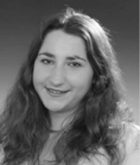
Marie received her first degree, majoring in psychology, in 2003 from Bath Spa University and an MSc in research methods in psychology in 2005 from the University of Bristol. Marie was awarded her PhD in cognitive psychology in 2008, from the University of the West of England. Whilst conducting her doctoral research she lectured in psychology at Bath Spa University. Marie's research interests and expertise are in cognition and perception and her teaching specialisms include research methods in psychology, in particular quantitative methods and experimental design. Marie joined Cranfield Defence and Security as a Research Fellow in 2008 and is now a Lecturer in Applied Cognitive Psychology. At Cranfield Defence and Security, Marie leads several human factors research projects within the military domain. Research includes the acquisition and retention of skills required to operate systems and human interaction with complex systems.
Luis Delgado
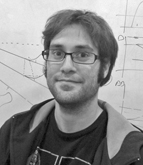
Luis Delgado is an aeronautical engineer from the National School for Civil Aviation (École Nationale de l'Aviation Civile or ENAC) in Toulouse, France. He also holds a degree in Computer Science Engineering from the Barcelona School of Informatics (Facultat d'Informàtica de Barcelona, FIB) which belongs to the Technical University of Catalonia (Universitat Politècnica de Catalunya, UPC). He earned both degrees in 2007. His research interests include improving the performance and efficiency of the air traffic management (ATM) system and flexible, reliable and cost-efficient unmanned aircraft systems (UAS) operations in civil airspace.
He has been working with UPC since 2007 and currently is an assistant professor at EETAC. He is also a PhD student of the Aerospace Science and Technology doctorate program from UPC and expects to graduate in 2012.
Jason J. Ford
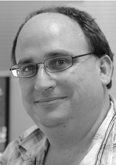
Jason J. Ford was born in Canberra, Australia in 1971. He received the BSc and BE degrees in 1995 and a PhD in 1998 from the Australian National University, Canberra. He was appointed a research scientist at the Australian Defence Science and Technology Organisation in 1998, and then promoted to a senior research scientist in 2000. He has held research fellow positions at the University of New South Wales, at the Australian Defence Force Academy in 2004 and at the Queensland University of Technology in 2005. He has held an academic appointment at the Queensland University of Technology since 2007. He has had academic visits to the Information Engineering Department at the Chinese University of Hong Kong in 2000 and to the University of New South Wales at the Australian Defence Force Academy from 2002 to 2004. He was awarded the 2011 Spitfire Memorial Defence Fellowship. His interests include signal processing and control for aerospace.
Št![]() pán Kop
pán Kop![]() iva
iva
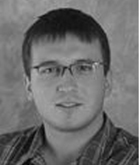
Št![]() pán Kop
pán Kop![]() iva is a researcher and PhD student at the Agent Technology Center of the Gerstner Laboratory, Department of Cybernetics, Czech Technical University. Št
iva is a researcher and PhD student at the Agent Technology Center of the Gerstner Laboratory, Department of Cybernetics, Czech Technical University. Št![]() pán graduated in 2009 from Imperial College London with an MSc degree in Advanced Computing. Prior to his current position, he worked as a programmer for the major POS systems manufacturer and researcher ATG.
pán graduated in 2009 from Imperial College London with an MSc degree in Advanced Computing. Prior to his current position, he worked as a programmer for the major POS systems manufacturer and researcher ATG.
Št![]() pǎn currently works on the AgentFly project -- large-scale simulation and control in the air-traffic domain. His main research interests are logics and formal methods for multi-agent systems, classical planning, and large-scale simulations.
pǎn currently works on the AgentFly project -- large-scale simulation and control in the air-traffic domain. His main research interests are logics and formal methods for multi-agent systems, classical planning, and large-scale simulations.
John Lai

John Lai was born in Taipei, Taiwan, in 1984. He received the BE (First Class Honours) degree in Aerospace Avionics in 2005 and a PhD in 2010, both from the Queensland University of Technology (QUT), Brisbane, Australia. Since obtaining his PhD, he has held a research fellow position at the Australian Research Centre for Aerospace Automation (ARCAA) -- a joint research collaboration between the Commonwealth Scientific and Industrial Research Organisation (CSIRO) and QUT.
Juan Manuel Lema
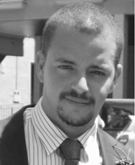
Juan Manuel Lema was born in Montevideo, Uruguay in 1985 and is a technical telecommunications engineer from EETAC. He also holds a Master of Science in Telecommunications Engineering and Management. Mr Lema began his collaboration with the ICARUS group in January 2007, where he is a junior researcher. Currently he is a PhD student in the Computer Architecture doctoral program about UAS mission management.
George Limnaios
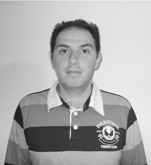
George Limnaios is a Major(Eng) at Hellenic Airforce. Since 1996 when he graduated from Hellenic Airforce Academy as an Avionics and Telecommunications Engineer he has been involved in the maintenance and support of A-7 and F-16 aircrafts serving the latter as a Technical Advisor and head of Quality Assurance Department. He is on educational leave seeking a post-graduate degree at the Technical University of Crete (Department of Electronic and Computer Engineering). His research interests include Renewable Energy Systems, Fault Tolerant Control, Fault Detection and Isolation and Unmanned Systems.
Luis Mejias
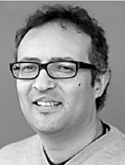
Luis Mejias received a degree in Electronic Engineering in November 1999 from UNEXPO (Venezuela), an MSc in Network and Telecommunication Systems from ETSIT-Universidad Politecnica de Madrid and a PhD from ETSII-Universidad Politecnica de Madrid. He has gained extensive experience with UAVs, investigating computer vision techniques for control and navigation. Currently, he is a lecturer in Aerospace Avionics at Queensland University of Technology, and a researcher at ARCAA.
Caroline Morin

Caroline obtained an M.A. and a Ph.D. in cognitive psychology from Laval University (Canada). She moved to the UK to take up a research fellowship at the University of Warwick where she was looking at the interaction between time and memory. In 2008, Caroline joined Cranfield University as a Research Fellow where she is leading a number of projects on Human Factors with a military population. Caroline's expertise is in human memory, categorization, time perception, decision making and human factors.
Peter O’Shea
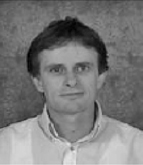
Peter O'Shea is a Professor of Electrical Engineering at the Queensland University of Technology (QUT), Australia. He received the BE, DipEd and PhD from the University of Queensland, and then worked as an engineer at the Overseas Telecommunications Commission for three years. He has held academic appointments at RMIT's School of Electrical and Computer Systems Engineering for 7 years and at QUT's School of Engineering Systems for 10 years. He has won teaching awards from both the RMIT and QUT University Presidents, and has also won national teaching awards from Engineers Australia and the Australian Learning & Teaching Council. He was a co-recipient of the best technical paper award at the 2005 IEEE TENCON Conference. His interests are in (i) signal processing for communications, aerospace and power systems; (ii) reconfigurable computing; and (iii) engineering education.
Enric Pastor

Enric Pastor was born in Barcelona in 1968 and is a computer science engineer from the Barcelona School of Informatics, which belongs to the Technical University of Catalonia (UPC). He also holds a PhD in Computer Architecture from the same university. Dr Pastor has been working with UPC since 1992 and is currently an associate professor at EETAC. His research interests include new UAS architectures and the automation of mission processes in UAS civil applications.
Michal P![]() chou
chou![]() ek
ek
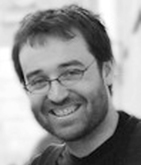
Michal P![]() chouček works as a Professor in Artificial Intelligence at the Department of Cybernetics, Czech Technical University, Prague. He graduated in Technical Cybernetics from FEE-CTU, obtained his MSc degree in IT: Knowledge Based Systems from the University of Edinburgh and completed his PhD in Artificial Intelligence and Biocybernetics at the CTU, Prague. He is Head of the Agent Technology Center at the Department of Cybernetics.
chouček works as a Professor in Artificial Intelligence at the Department of Cybernetics, Czech Technical University, Prague. He graduated in Technical Cybernetics from FEE-CTU, obtained his MSc degree in IT: Knowledge Based Systems from the University of Edinburgh and completed his PhD in Artificial Intelligence and Biocybernetics at the CTU, Prague. He is Head of the Agent Technology Center at the Department of Cybernetics.
His research focuses on problems related to multi-agent systems, especially topics related to social knowledge, meta-reasoning, acting in communication inaccessibility, coalition formation, agent reflection, and multi-agent planning. Michal is an author or co-author of cited publications in proceedings of international conferences and journal papers. In addition, he is a member of the program committee of relevant conferences and workshops.
Xavier Prats

Xavier Prats is an aeronautical engineer from ENAC. He also holds a degree in Telecommunications Engineering from Telecom Barcelona (Escola Tècnica Superior d'Enginyeria de Telecomunicació de Barcelona, ETSETB) which belongs to the Technical University of Catalonia (Universitat Politècnica de Catalunya, UPC) in Barcelona (Spain). He earned both degrees in 2001. Furthermore, he received his PhD in Aerospace Science and Technology from UPC in 2010. His research interests include improving the performance and efficiency of the air traffic management (ATM) system and flexible, reliable and cost-efficient unmanned aircraft systems (UAS) operations in civil airspace.
He has been working with UPC since 2001 and currently is an assistant professor at EETAC. He co-founded the ICARUS research group and currently leads the group's air transportation research activities.
Jorge Ramirez

Jorge Ramirez is an aeronautical engineer from ENAC. He also holds a degree in Computer Science Engineering from the Barcelona School of Informatics (Facultat d'Informàtica de Barcelona, FIB) which belongs to the Technical University of Catalonia (Universitat Politècnica de Catalunya, UPC). He earned both degrees in 2000. His research interests include flexible, reliable and cost-efficient unmanned aircraft systems (UAS) operations in civil airspace and the use and optimization of communications navigation and surveillance (CNS) technologies for UAS.
He has been working with UPC since 2007 and currently is a lecturer at the Castelldefels School of Technology (Escola Politècnica Superior de Castelldefels or EPSC). He is also a PhD student of the Aerospace Science and Technology doctorate program from UPC and expects to graduate in 2012. Before joining UPC, Jorge was a software engineer at GMV during the 2000--2002 period and worked on the operational implementation of the European Geostationary Navigation Overlay Service (EGNOS). During the period 2002--2007 he worked as a system engineer at EADS--CASA, focusing on the interoperability assessment of tactical datalink systems in different projects such as the European airlifter A400M, the British tanker FSTA and the Australian MRTT.
Pablo Royo
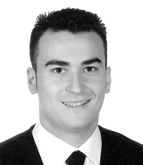
Pablo Royo is a telecommunications engineer from EETAC. He earned his degree in 2004. Furthermore, he received his PhD in Computer Architecture from the same university in 2010. His research interests include improving the performance and efficiency of the air traffic management (ATM) system and flexible, reliable and cost-efficient unmanned aircraft systems (UAS) operations in civil airspace.
He has been working with UPC since 2002 and currently is a lecturer at the EETAC.
Eduard Santamaria
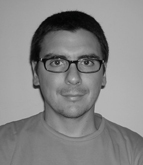
Eduard Santamaria was born in Sant Pere Pescador in 1974 and is an informatics engineer from the Barcelona School of Informatics, which belongs to the Technical University of Catalonia (UPC). He also holds a PhD in Computer Architecture from the same university. Dr Santamaria has been working with UPC since 2000 and is currently a lecturer at the School of Telecommunications and Aerospace Engineering of Castelldefels. His research is focused on mechanisms for mission specification and execution for UAS.
Hyo-Sang Shin

Hyo-Sang Shin is Lecturer on Guidance, Control and Navigation Systems in Centre for Autonomous Systems Group at Cranfield University, Defence College of Management and Technology. He gained an MSc on flight dynamics, guidance and control in Aerospace Engineering from KAIST and a PhD on cooperative missile guidance from Cranfield University. His experties include guidance, navigation, and control of UAVs, complex weapon systems, and spacecraft. He has published over 35 journal and conference papers and has been invited for many lectures both in Universities and industries mainly on path planning, cooperative control, collision avoidance and trajectory shaping guidance. His current research interests include cooperative guidance and control for multiple vehicles, optimal and adaptive nonlinear guidance, integrated guidance and control algorithm, coordinated heath monitoring and management, and air traffic management and sense-and-avoid for UAV.
David Šišlák

David Šišlák is a senior research scientist in the Agent Technology Center at the Department of Cybernetics, Czech Technical University, Prague. He is the chief system architect for the AgentFly and Aglobe systems. He participates in many research projects related to these systems, funded by Czech and also foreign research sponsors. His research interests are in technical cybernetics and multi-agent systems, focusing on decentralized collision avoidance algorithms in air-traffic domain, efficient communication, knowledge maintenance in inaccessible multi-agent environment, large-scale multi-agent simulations and agent frameworks.
David received a Master's degree in Technical Cybernetics and a PhD in Artificial Intelligence and Biocybernetics from the Czech Technical University, Prague. David is an author or co-author of many cited publications in proceedings of international conferences and journal papers. During his PhD studies, he obtained the IEEE/WIC/ACM WI-IAT Joint Conference `Best Demo' Award, the international Cooperative Information Agents (CIA) workshop system innovation award for the Aglobe multi-agent platform and related simulations, and later he was a member of a team which won the main Engineering Academy prize of the Czech Republic. In 2011, David received the Antonin Svoboda prize for the best dissertation of 2010 awarded by the Czech Society for Cybernetics and Informatics.
Graham Spence
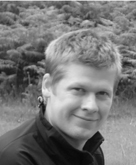
Graham Spence graduated from the University of Leeds (UK) in 1995 with a BSc in Computer Science with Artificial Intelligence. He continued as a postgraduate research student at Leeds and in 1999 was awarded his PhD on the subject of High Temperature Turbulent Diffusion Flame Modelling. For the next several years Graham worked in industry as a computer programmer, but was drawn back to a research post at the University of Sheffield (UK) in 2003, where he researched and developed a real-time model of aircraft interactions during wake vortex encounters. The project successfully integrated into a research flight simulator, large datasets resulting from large eddy simulations of the decay of aircraft wake vortices, enabling real-time simulations of the fly-through of computational fluid dynamics data. After completion of this project, Graham continued at the University of Sheffield where he researched and developed several automated airspace collision detection and avoidance algorithms. Recently, Graham has been involved in an international project that aimed to develop and demonstrate automation technologies that could assist with the challenge of UAS integration into non-segregated airspace. Graham currently works for Aerosoft Ltd in Sheffield (UK) and his research interests include aircraft separation algorithms, flight simulation, aircraft wake vortex interaction, data compression, computer networking and the application of recent smart phone and tablet technologies to airspace safety.
Antonios Tsourdos

Antonios Tsourdos is a Professor and Head of the Centre for Autonomous Systems at Cranfield University, Defence Academy of the United Kingdom. He was member of the Team Stellar, the winning team for the UK MoD Grand Challenge (2008) and the IET Innovation Award (Category Team, 2009). Antonios is an editorial board member of the Proceedings of the IMechE Part G Journal of Aerospace Engineering, the International Journal of Systems Science, the IEEE Transactions of Instrumentation and Measurement, the International Journal on Advances in Intelligent Systems, the Journal of Mathematics in Engineering, Science and Aerospace (MESA) and the International Journal of Aeronautical and Space Sciences. Professor Tsourdos is a member of the ADD KTN National Technical Committee on Autonomous Systems. Professor Tsourdos is co-author of the book Cooperative Path Planning of Unmanned Aerial Vehicles and over 100 conference and journal papers on guidance, control and navigation for single and multiple autonomous vehicles.
Nikos Tsourveloudis
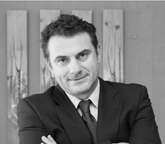
Nikos Tsourveloudis is a Professor of Manufacturing Technology at the Technical University of Crete (TUC), Chania, Greece, where he leads the Intelligent Systems and Robotics Laboratory and the Machine Tools Laboratory. His research interests are mainly in the area of autonomous navigation of field robots. His teaching focuses on manufacturing and robotic technologies and he has published more than 100 scientific papers on these topics. Tsourveloudis serves on the editorial board of numerous scientific journals and conferences. He is a member of professional and scientific organizations around the globe, and several public organizations and private companies have funded his research.
Tsourveloudis' research group has been honored with several prizes and awards, among which the most recent are: the 3rd EURON/EUROR Robotic Technology Transfer Award (2009); the 1st ADAC Car Safety Award (2010 and 2011); and the Excellent Research Achievements Award by the TUC (2010). In 2010/2011 he held a Chair of Excellence in Robotics at the University Carlos III of Madrid (UC3M), Spain.
Kimon P. Valavani
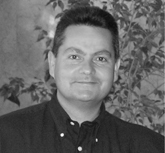
Kimon P. Valavanis is currently Professor and Chair of the ECE Department at the School of Engineering and Computer Science, University of Denver (DU), and Director of the DU Unmanned Systems Laboratory. He is also Guest Professor in the Faculty of Electrical Engineering and Computing, Department of Telecommunications, University of Zagreb, Croatia.
Valavanis' research interests are focused in the areas of Unmanned Systems, Distributed Intelligence Systems, Robotics and Automation. He has published over 300 book chapters, technical journal/transaction and referred conference papers. He has authored, co-authored or edited 14 books, the two most recent ones being: On Integrating Unmanned Aircraft Systems in to the National Airspace System: Issues, Challenges, Operational Restrictions, Certification, and Recommendations (K. Dalamagkidis, K. P. Valavanis, L. A. Piegl), 2nd Edition, Springer 2012; Linear and Nonlinear Control of Small Scale Unmanned Rotorcraft (I. A. Raptis, K. P. Valavanis), Springer, 2011. Since 2006, he is Editor-in-Chief of the Journal of Intelligent and Robotic Systems. Valavanis has been on the organizing committee of many conferences, he is a senior member of IEEE and a Fellow of the American Association for the Advancement of Science. He is also a Fulbright Scholar.
P![]() emysl Volf
emysl Volf

P![]() emysl Volf holds a Master's degree in Software Systems from the Faculty of Mathematics and Physics at Charles University, Prague. He is currently a researcher and PhD student at the Agent Technology Center of the Gerstner Laboratory, Department of Cybernetics, Czech Technical University. His research is focused on distributed cooperative algorithms used for collision avoidance in air traffic control and verification of these algorithms using theory and prototypes.
emysl Volf holds a Master's degree in Software Systems from the Faculty of Mathematics and Physics at Charles University, Prague. He is currently a researcher and PhD student at the Agent Technology Center of the Gerstner Laboratory, Department of Cybernetics, Czech Technical University. His research is focused on distributed cooperative algorithms used for collision avoidance in air traffic control and verification of these algorithms using theory and prototypes.
Rod Walker
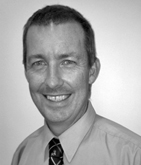
Rod has degrees in Electrical Engineering, Computer Science and a PhD in Satellite Navigation and Electromagnetics, the latter involving a year-long sabbatical at the Rutherford Appleton Laboratory, Oxford, UK. From 1997 to 2005 he was the program leader for the GNSS payload on `FedSat', working closely with NASA's Jet Propulsion Lab in Pasadena, CA. From 1999 to 2009 he taught in QUT's Bachelor of Aerospace Avionics. He rose to the position of Professor of Aerospace Avionics at QUT in 2008. During this time he was involved in training over 300 aerospace engineers. He is the foundation director for the Australian Research Centre for Aerospace Automation (ARCAA).
Brian A. White

Brian A. White is Professor Emeritus at Cranfield University. His areas of expertise are robust control, non-linear control, estimation, and observer applications, navigation and path planning, decision making, guidance design, soft computing, and sensor and data fusion. He has published widely over his career in all of the areas with well over 100 papers. He has been invited for many keynote lectures, both in Universities and at International conferences, topics being mainly on autonomy, decision making, path planning in recent years. He has served on many editorial boards and working groups, both within the UK and Internationally. He was also a key member of the Stellar Team that won the MOD Grand Challenge, where many of the techniques mentioned in this proposal were implemented within an autonomous system comprising several UAVs and a UGV.
Michael Wilson

Michael Wilson is a Senior Researcher at Boeing Research and Technology -- Australia, specialising in unmanned aircraft systems. Michael has worked on the Smart Skies project since 2007. During this time he was also involved in the first commercially-oriented trials of the ScanEagle in non-segregated civilian airspace.
Michael joined Boeing in 2000 and worked on the modelling and analysis of wireless and networked systems, the design and testing of signal and waveform detection algorithms and the modelling of antenna systems. Michael has also spent some time as a consultant and a part-time lecturer.
Michael started his career working on Australia's over-the-horizon radar programme. His research focussed on the effects of the radio wave propagation environment on the design and the performance of radar systems.
Michael gained his PhD in 1995, from the University of Queensland, where he used a phased-array radar to study ionospheric disturbances.
Andrew Zeitlin

Andrew Zeitlin leads the Sense & Avoid product team within RTCA SC-203, bringing this activity his experience with avionics standards and implementation. He is considered an eminent expert in collision avoidance, having devoted more than 30 years to spearheading the development and standardization of TCAS aboard commercial aircraft, and is currently co-chairing the Requirements Working Group of SC-147. He received the John C. Ruth Digital Avionics Award from the AIAA in 2007. He received a BSEE from the University of Pennsylvania, an MSEE from New York University, and a DSc from George Washington University.
